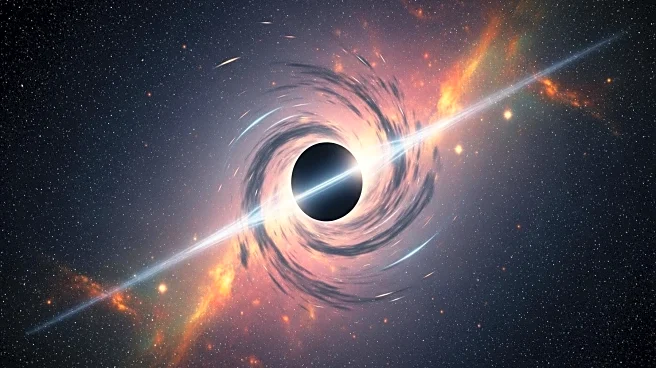What's Happening?
Physicists at the University of Massachusetts Amherst have published research suggesting a high probability of observing a black hole explosion within the next decade. This event would likely involve a primordial black hole, formed shortly after the Big Bang. The explosion could provide a comprehensive inventory of subatomic particles, including those beyond the standard model, such as dark matter candidates. The team's 'dark-QED toy model' challenges previous assumptions about black hole charge, proposing that primordial black holes could explode more frequently than previously thought.
Why It's Important?
The potential observation of a primordial black hole explosion could revolutionize our understanding of particle physics and cosmology. It offers the possibility of directly observing Hawking radiation, which would confirm theoretical predictions about black hole behavior. The findings could lead to breakthroughs in identifying the universe's particle composition and understanding the origins of matter.
What's Next?
Researchers are preparing to utilize existing telescopes to detect Hawking radiation from potential black hole explosions. This preparation involves refining observational techniques and challenging established assumptions about black hole properties. The scientific community is poised to leverage this opportunity to advance our understanding of quantum mechanics and cosmology.
Beyond the Headlines
The detection of an exploding primordial black hole could challenge existing theories about black hole formation and behavior. It may also influence the development of new technologies in quantum sensing and particle physics, as researchers explore the implications of Hawking radiation and the properties of primordial black holes.








